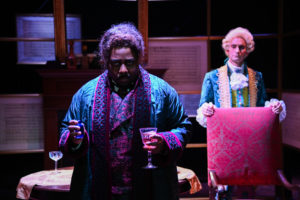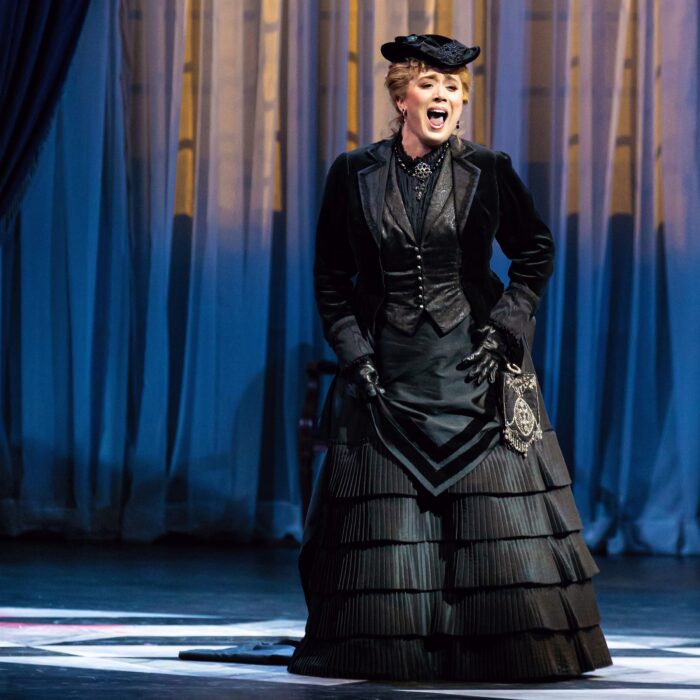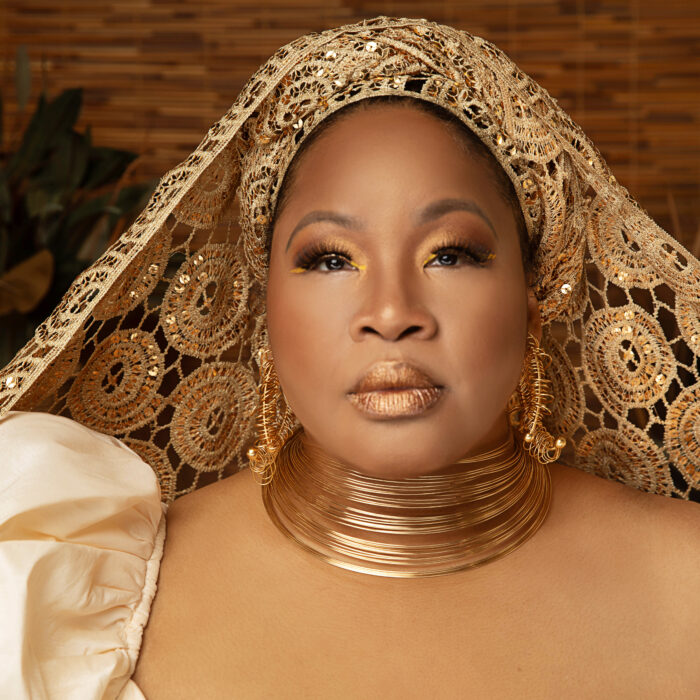
Q & A: Sidney Outlaw on ‘Mozart and Salieri’ at Opera San José
By Francisco SalazarOn Sept. 30, Opera San José will premiere a production of Rimsky-Korsakov’s “Mozart and Salieri.”
The intimate work is considered a psychological thriller that explores the relationship between Mozart and Salieri and the clash between the two composers over the very nature of artistic genius. The work is based on Alexander Pushkin’s 1830 play which explores the rumor that Salieri poisoned his famous rival.
The production will star Sidney Outlaw in the role of Salieri. The rising star has performed more than 100 domestic performances at such prestigious houses as San Francisco Opera, Minnesota Opera and Mill City Opera.
OperaWire spoke to the baritone about singing the production, the recording process, and playing a villain.
OperaWire: Tell me about working with Opera San José and what the experience has been like?
Sidney Outlaw: My experience working with Opera San José was a very enjoyable one! We had a wonderful time putting the puzzle pieces together. Some of the puzzle pieces were very familiar, while others were not because of the nature of how we wanted to re-imagine the presentation of this opera. It was a lovely experience, I really enjoyed myself!
OW: This is a virtual production, how does it differ from the other virtual work you did during the height of the pandemic?
SO: This project, indeed, was filmed for virtual viewing. However, it was unlike other virtual projects I worked on last year which – with the exception of the Jessye Norman gala with Black Opera Film – were performed remotely. Here, I did not have to worry about turning on my camera and all that. Opera San José had wonderful professionals to record and edit the performance beautifully, which left me in my lane to act and make music accordingly. It was a major relief!
OW: Tell me about the role of Salieri in this opera? How does this interpretation of the character differ from others you have seen?
SO: In my opinion, Salieri’s character isn’t really the villain in this production. I believe that Salieri is at the end of his life, and reflecting on his journey and work. While doing so, he seems to be dealing with a bit of dementia and mental health issues, which has led to the creation of this world that involves his obsession with Mozart and his genius. My interpretation of this character was to try my best to show Salieri’s humanity.
OW: What are the biggest challenges of the role?
SO: My biggest challenge with this role was portraying his humanity and showing that the role of Mozart was actually coming from my mind.
OW: What kind of research did you do to get into this character and how do you make him sympathetic especially when he is known as a villain?
SO: As for the exploration of the character, I did a bit of historical research in addition to what I already knew about Salieri. I honestly did not get caught up on what Salieri was “known” for. I focused instead on showing his humanity from an honest place dramatically and musically!
OW: What is one of your favorite parts about playing this role?
SO: The beauty of the music is what I loved the most. I feel like Rimsky-Korsakov wrote in a way that provided me with the opportunity to show the beauty of my voice and my musicianship in a way that sometimes I am not able to do.
OW: Tell me about working with Simon Barrad and how you played off each other?
SO: Working with Simon was wonderful. He speaks Russian, and it was wonderful having him there to collaborate with and connect with dramatically because he understood what I was saying in Russian on a different level. That was awesome because we had the opportunity to play with text and music in a different way. Simon is also a dope musician and an amazing human. I appreciate him and his hard work on this project #Simonsavedtheday!
OW: What do you hope audiences take away from this work?
SO: I hope that the audience enjoys this project as much as we enjoyed creating it and performing it! I hope it inspires them to continue to support the arts – not just the big opera companies, but many of the small companies as well. There is a lot of great work happening in the regional opera houses and I hope this production helps to highlight that!


